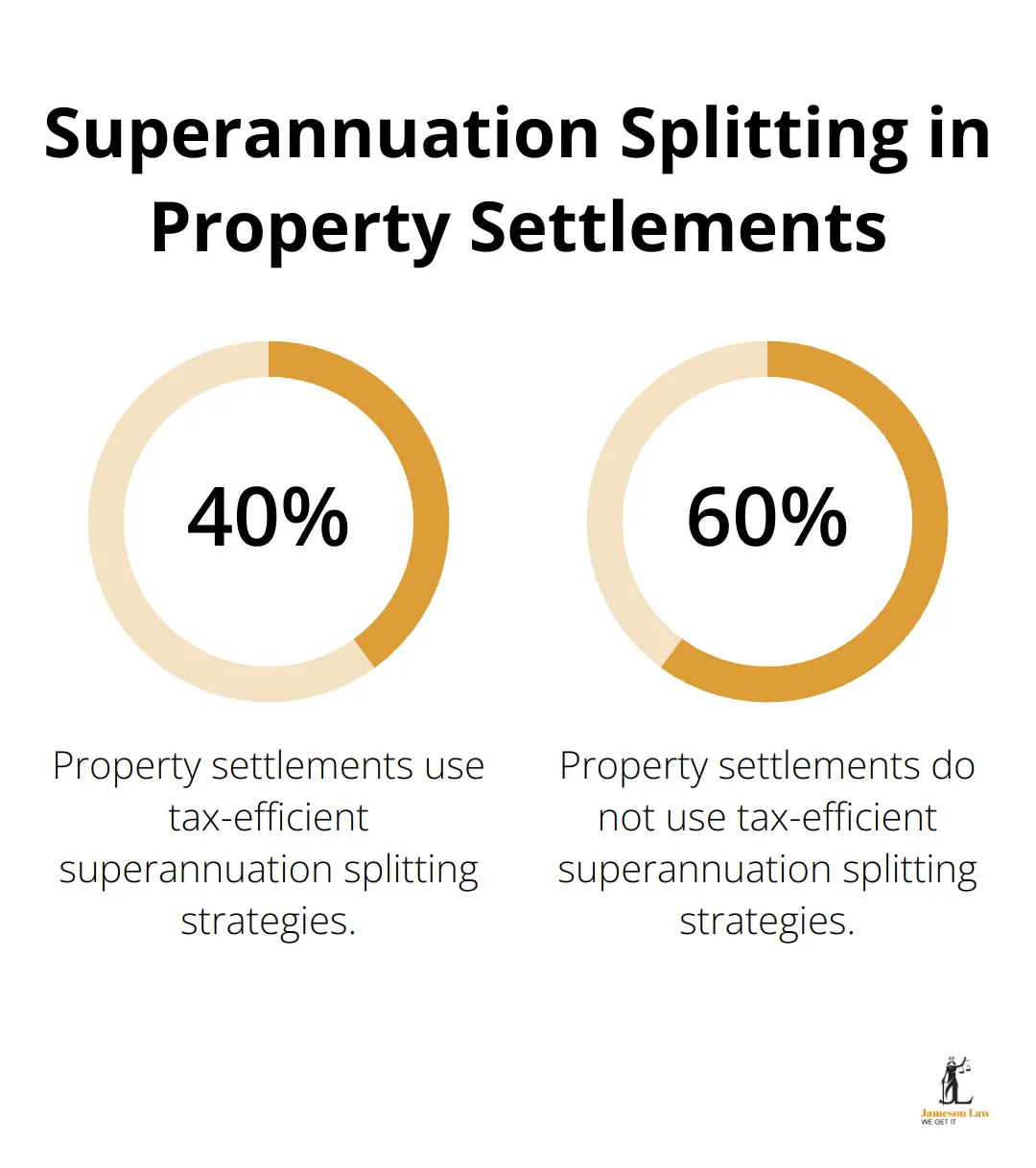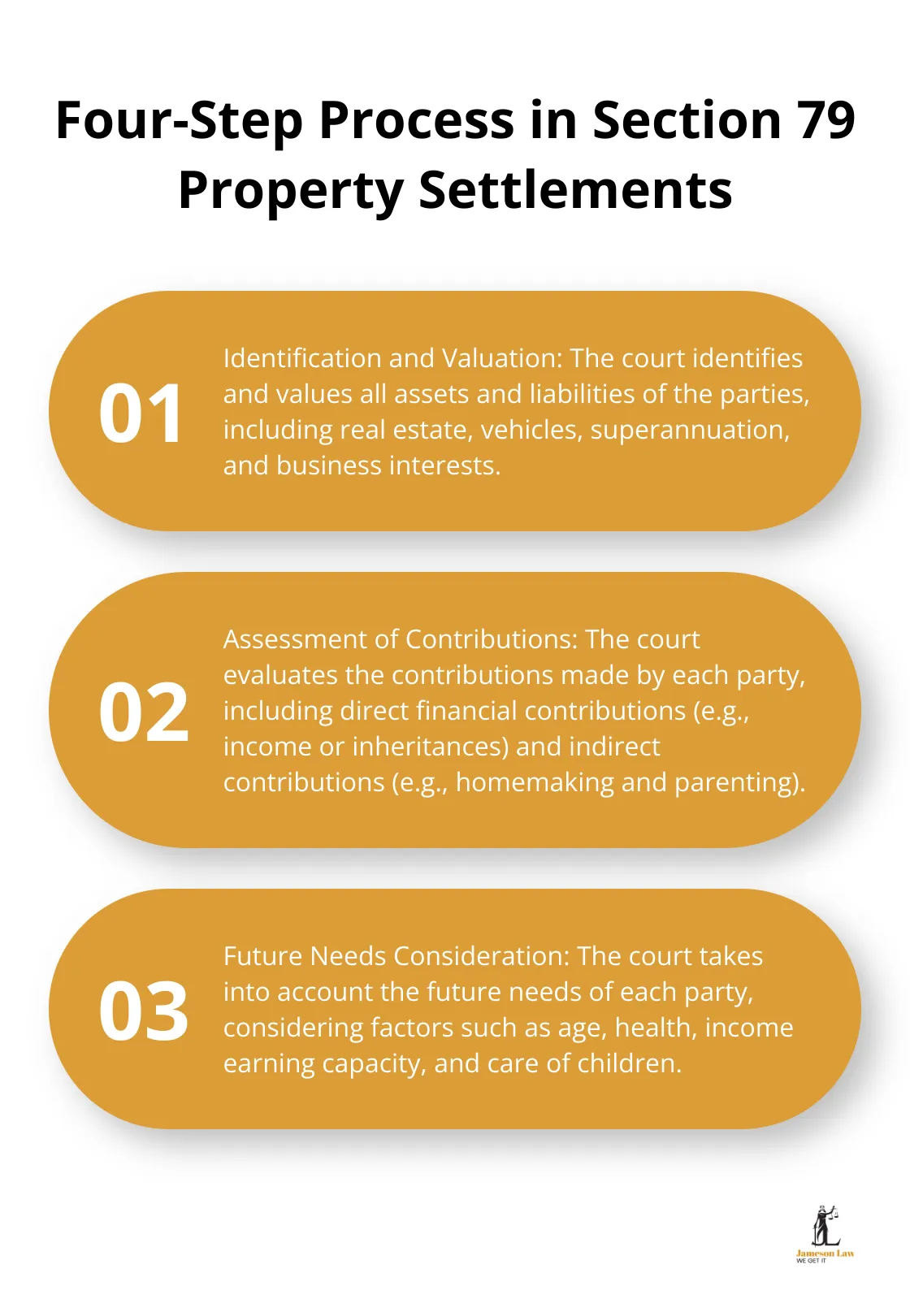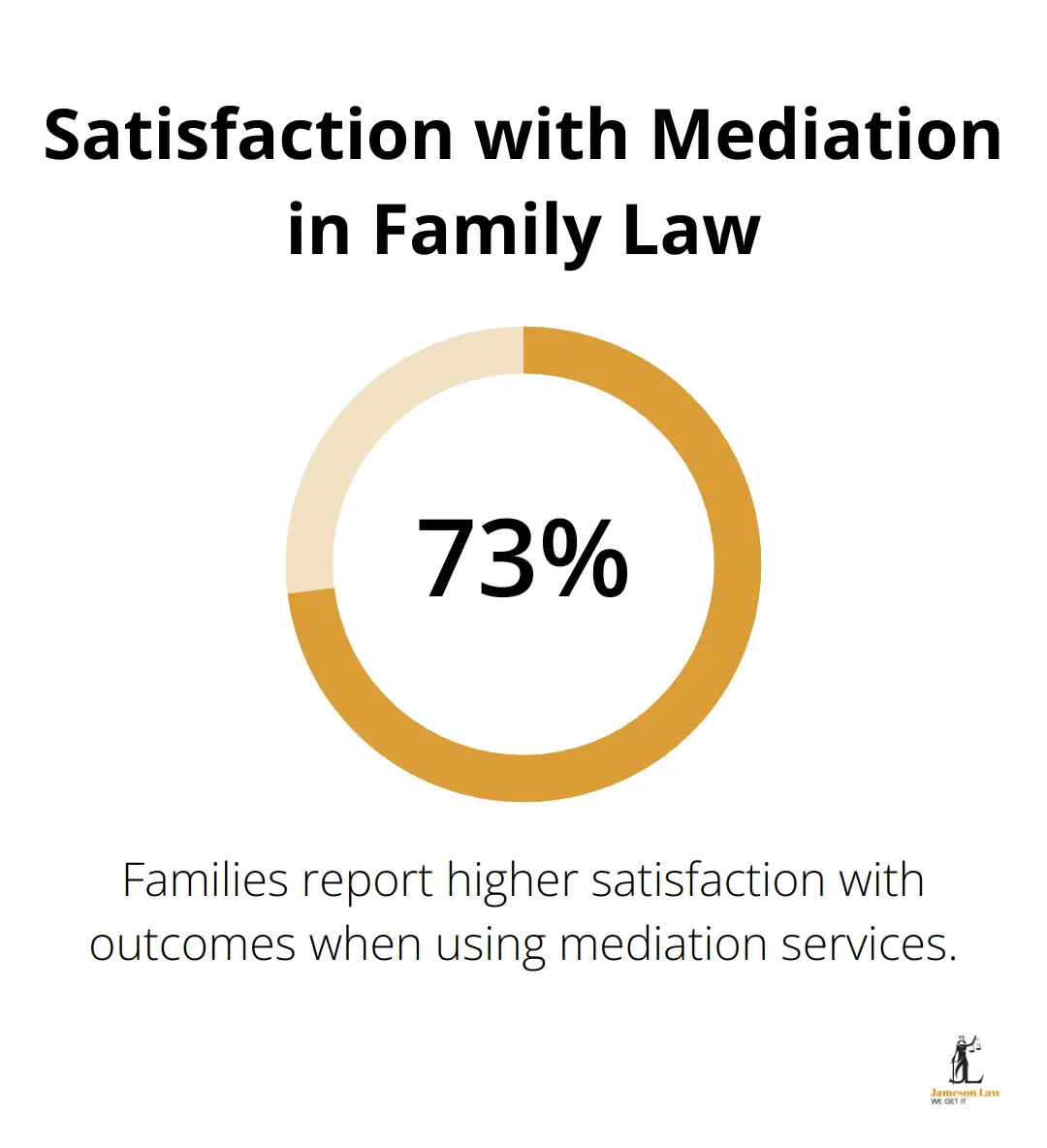Navigating Family Law Act Section 79 can be a complex process for those going through a property settlement. This crucial part of Australian family law outlines how property is divided after a relationship breakdown.
At Jameson Law, we understand the intricacies of this legislation and its impact on your financial future. Our goal is to guide you through the property settlement process, ensuring you achieve a fair and just outcome.
Understanding Section 79 of the Family Law Act
The Scope and Purpose of Section 79
Section 79 of the Family Law Act 1975 forms a cornerstone of Australian family law, particularly in property settlements after relationship breakdowns. This section empowers courts to alter property interests between parties to a marriage or de facto relationship.
The application of Section 79 extends to both married couples and de facto partners. It authorises the court to make orders for a just and equitable division of property, considering various factors. These factors encompass financial and non-financial contributions made by each party, as well as their future needs.
Key Elements in Property Settlements
When courts apply Section 79, they adhere to a four-step process:
- Identification and Valuation: The court identifies and values all assets and liabilities of the parties. This includes real estate, vehicles, superannuation, and business interests.
- Assessment of Contributions: The court evaluates the contributions made by each party. These can be direct financial contributions (e.g., income or inheritances) or indirect contributions (e.g., homemaking and parenting).
- Future Needs Consideration: The court takes into account the future needs of each party. Factors such as age, health, income earning capacity, and care of children play a role in this assessment.
- Just and Equitable Determination: The court determines whether the proposed division is just and equitable in all circumstances.
Practical Implications and Challenges
The navigation of Section 79 presents complexities in practice. For instance, nearly 40% of property settlements involving superannuation use tax-efficient splitting strategies. This statistic underscores the importance of considering all assets, even those not immediately accessible.

Furthermore, the Family Court of Australia emphasises the necessity of full and frank disclosure of all financial information. Failure to disclose assets can result in severe penalties and may lead to the reopening of property settlements.
The Role of Legal Expertise
The intricacies of Section 79 highlight the value of expert legal guidance. Early legal advice and thorough preparation often prove instrumental in achieving fair results under this section of the Family Law Act. Legal professionals possess the knowledge and experience to navigate these complexities effectively.
As we move forward, we will explore the specific factors that courts consider when making property division decisions under Section 79. This understanding will provide a solid foundation for those facing property settlements in the context of Australian family law.
Factors Influencing Property Division Under Section 79
Financial and Non-Financial Contributions
Courts assess both financial and non-financial contributions made by each party during the relationship when applying Section 79 of the Family Law Act. Financial contributions include income, savings, and property brought into the relationship or acquired during its course. Non-financial contributions, often overlooked but equally important, encompass homemaking, child-rearing, and other domestic duties.
The Australian Institute of Family Studies reports that indirect financial contributions made to the acquisition of property can pose a difficulty when ascertaining the weight that should be placed in their favour. This recognition emphasises the importance of documenting all types of contributions throughout your relationship.
Future Needs Assessment
The court also considers the future needs of each party. This assessment takes into account factors such as age, health, income earning capacity, and care of children. For instance, if one party has primary care of the children, this may influence the property division in their favour.
A study by the Australian National University found that the Australian Law Reform Commission (ALRC) was established on 1 January 1975 by the Law Reform Commission Act 1973 (Cth). This underscores the importance of presenting a clear picture of your future financial situation to the court.
Achieving Just and Equitable Outcomes
The overarching goal of Section 79 is to achieve a just and equitable outcome for both parties. This doesn’t necessarily mean a 50-50 split. Instead, the court tries for a fair division based on the unique circumstances of each case.

Consideration of Special Circumstances
Courts may also take into account special circumstances that could affect the property division. These may include:
- Domestic violence or financial abuse
- Inheritance or gifts received during the relationship
- Significant health issues or disabilities
- Business assets and their valuation
The Role of Legal Representation
Navigating the complexities of Section 79 often requires expert legal guidance. A skilled family lawyer can help you understand your rights, gather necessary evidence, and present your case effectively to the court.
As we move forward to explore the practical steps involved in the property settlement process, it’s important to keep these influencing factors in mind. They form the foundation upon which courts make their decisions, and understanding them can significantly impact your approach to property division negotiations.
How to Navigate the Property Settlement Process
Gather Essential Documentation
The first step in any property settlement requires a comprehensive list of all assets and liabilities. This includes bank statements, superannuation details, property valuations, and other financial records. The Family Court delivered a stark reminder about its wider powers to deal with those who failed to provide full and frank disclosure of their financial affairs.
Create a detailed financial statement that outlines your income, expenses, assets, and debts. Thoroughness matters – even small details can significantly impact the final settlement.
Explore Alternative Dispute Resolution
Before court proceedings, consider alternative dispute resolution methods. Families who engage in mediation services report 73% higher satisfaction with outcomes and arrangements compared to those who proceed through other methods.

Mediation involves a neutral third party who helps you and your ex-partner negotiate a settlement. This process often takes less time and money than going to court. It also provides more control over the outcome.
If mediation doesn’t suit your situation, collaborative law offers another option. This approach involves both parties and their lawyers working together to reach an agreement without court intervention. It’s a team-based method that can lead to more creative, tailored solutions.
Understand Court Proceedings
Court proceedings become necessary if alternative dispute resolution methods fail. The timeline for court proceedings varies, but typically takes between 12 to 18 months from filing to final orders.
The court process starts with filing an application for property settlement. You’ll then attend a case assessment conference, where a registrar assesses your case and determines the next steps. This might include ordering valuations of property or businesses.
The court process offers opportunities for negotiation and settlement. There is no automatic presumption that any party is entitled to any percentage and each party will need to prove to the Court that they should be awarded their claimed share.
Court should serve as a last resort. It often consumes more time, money, and emotional energy than other resolution methods. However, some cases (particularly those involving significant power imbalances or complex financial arrangements) may require court intervention to ensure a fair outcome.
Seek Professional Legal Advice
Navigating property settlements under Section 79 of the Family Law Act presents numerous challenges. Professional legal advice proves invaluable in this process. A skilled family lawyer can help you understand your rights, gather necessary evidence, and present your case effectively.
At Jameson Law, we offer expert guidance through every step of the property settlement process. Our team’s combined experience of over 40 years ensures that you receive comprehensive support tailored to your unique situation.
Final Thoughts
Family Law Act Section 79 presents complex challenges in property settlements. You must understand legal principles and practical considerations to navigate this process effectively. Professional legal guidance proves essential to protect your rights and prepare for negotiations or court proceedings.
Courts strive for just and equitable outcomes when applying Section 79, which may not always result in an equal split. Your unique circumstances, contributions, and future needs influence the final settlement. Detailed financial records and alternative dispute resolution methods can significantly impact your property division case.
Jameson Law specialises in guiding clients through family law intricacies, including property settlements under Section 79. Our team’s experience ensures comprehensive support tailored to your specific situation. We work to protect your interests through mediation, collaborative law, or court representation.













